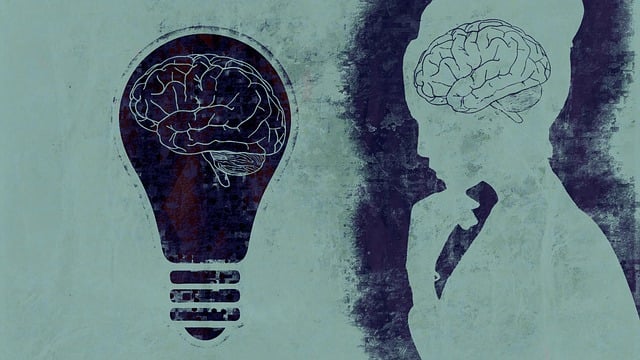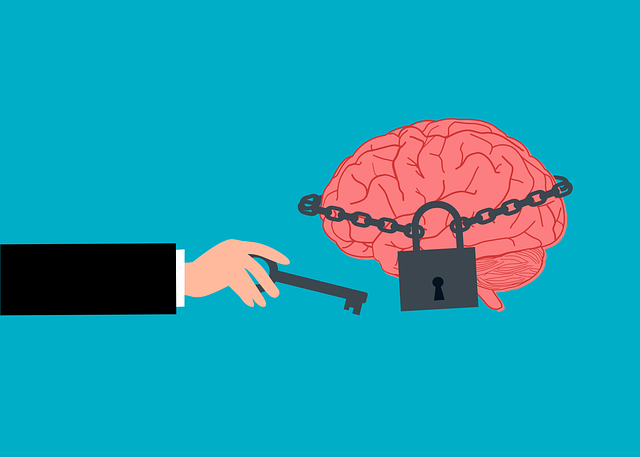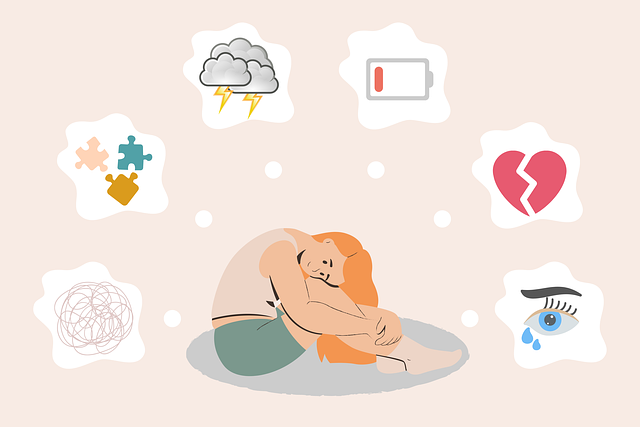Mental health professionals at Lone Tree Anger Management Therapy prioritize risk management through comprehensive policy analysis, empathy-building, and dynamic strategy adaptation. They assess individual client challenges, utilize evidence-based practices like mindfulness, and maintain work-life balance to support emotionally demanding cases effectively. By combining robust protocols, communication strategies, and inner strength development tools, they create safe spaces for clients to manage anger-related issues while enhancing their own well-being.
“In the sensitive field of mental health care, effective risk management is paramount to ensure client safety and well-being. This article guides Lone Tree Anger Management Therapy professionals through a comprehensive approach to mitigate risks and enhance practice resilience. We explore key areas such as understanding the unique risks in mental health practice, identifying potential threats, developing tailored risk strategies, implementing robust safety protocols for client interactions, and continuously adapting to evolving challenges. By adhering to these practices, therapists can create a safer environment and deliver high-quality care.”
- Understanding Risks in Mental Health Practice
- Identifying Potential Threats and Vulnerabilities
- Developing a Comprehensive Risk Management Plan
- Implementing Safety Protocols for Client Interactions
- Continuous Evaluation and Adaptation of Risk Strategies
Understanding Risks in Mental Health Practice

In the realm of mental health care, understanding risks is paramount for practitioners. As a professional navigating this intricate landscape, it’s crucial to recognize that each client brings their unique set of challenges and potential triggers. From managing anger, often seen in Lone Tree Anger Management Therapy settings, to addressing anxiety relief needs, every interaction carries inherent complexities. Mental wellness professionals must be adept at assessing these risks to foster a safe and supportive environment.
The path to effective risk management involves cultivating compassion and employing evidence-based practices like mindfulness and compassion cultivation techniques. By integrating these strategies, mental health professionals can anticipate potential issues, develop robust coping mechanisms, and ensure the well-being of both themselves and their clients. This proactive approach is essential in maintaining a healthy work-life balance, particularly when dealing with emotionally demanding cases.
Identifying Potential Threats and Vulnerabilities

Mental health professionals often find themselves at the intersection of intense emotions and delicate situations, making them susceptible to various risks. Identifying potential threats and vulnerabilities is a crucial first step in any risk management plan. This process involves a thorough Mental Health Policy Analysis and Advocacy, considering the unique challenges faced by practitioners, such as those specializing in Lone Tree Anger Management Therapy.
One significant vulnerability arises from the intimate nature of therapy sessions. Therapists may be exposed to intense emotions, traumatic revelations, or even physical threats from clients. Additionally, the personal nature of conflict resolution techniques used in these settings demands continuous self-awareness and emotional resilience. Empathy Building Strategies play a vital role here, ensuring professionals remain grounded while navigating potentially volatile situations, especially when dealing with angry or distressed individuals.
Developing a Comprehensive Risk Management Plan

Developing a Comprehensive Risk Management Plan is an essential step for mental health professionals to safeguard their well-being and effectively support their clients. At Lone Tree Anger Management Therapy, we understand that navigating complex client cases can be challenging, especially when dealing with intense emotions like anger. Therefore, creating a structured plan is vital to mitigate potential risks and ensure the best possible outcomes.
This process involves a thorough Risk Assessment for Mental Health Professionals, considering various factors such as the nature of the work, client demographics, and personal vulnerabilities. By incorporating strategies for Depression Prevention and leveraging Healthcare Provider Cultural Competency Training, professionals can enhance their resilience and improve patient care. Such training equips them with the skills to recognize cultural nuances, manage high-risk cases, and foster supportive environments, ultimately revolutionizing the way they address mental health concerns.
Implementing Safety Protocols for Client Interactions

Mental health professionals play a critical role in guiding individuals towards healing and recovery, often tackling complex issues like anger management. At Lone Tree Anger Management Therapy, we recognize that establishing robust safety protocols is paramount for ensuring both client well-being and effective therapy sessions. These protocols are designed to mitigate potential risks, foster secure interactions, and promote a therapeutic environment.
Effective safety measures begin with clear communication strategies tailored to each client’s needs. Our therapists employ techniques from the Stress Management Workshops Organization to establish boundaries, encourage open dialogue, and enhance mutual understanding. By empowering clients with inner strength development tools, we enable them to manage their emotions effectively during sessions, ensuring a safe and supportive space for addressing anger-related issues.
Continuous Evaluation and Adaptation of Risk Strategies

Mental health professionals must adopt a dynamic approach to risk management, continually evaluating and adapting their strategies to align with evolving client needs and circumstances. This ongoing process, akin to navigating a complex landscape, involves regularly reassessing risk assessment tools, treatment plans, and safety protocols in light of new research findings, regulatory changes, and individual client factors. By embracing this adaptability, therapists can ensure that their practices remain effective and responsive to the unique challenges presented by each client, enhancing the overall quality of care provided, especially for those seeking Lone Tree Anger Management Therapy.
Incorporating Mind Over Matter principles into daily practice facilitates this adaptive process. Self-care routine development for better mental health is a cornerstone of these principles, empowering therapists to maintain their own emotional well-being and resilience. Additionally, mindfulness meditation techniques can enhance focus, empathy, and stress management capabilities, allowing professionals to approach risk assessments with clarity and calmness. Through such proactive measures, mental health practitioners can optimally support clients while safeguarding against unforeseen risks.
Effective risk management planning is essential for mental health professionals, as it fosters a safe environment for both clients and practitioners. By understanding the unique risks in their practice, such as managing intense emotions like anger, mental health professionals can proactively identify threats and vulnerabilities. Developing a comprehensive risk plan, implementing robust safety protocols, and continuously evaluating strategies enable professionals to navigate complex situations with confidence. Just as Lone Tree Anger Management Therapy focuses on transforming individuals’ lives by addressing anger, proactive risk management ensures the well-being of everyone involved in the therapeutic process.














